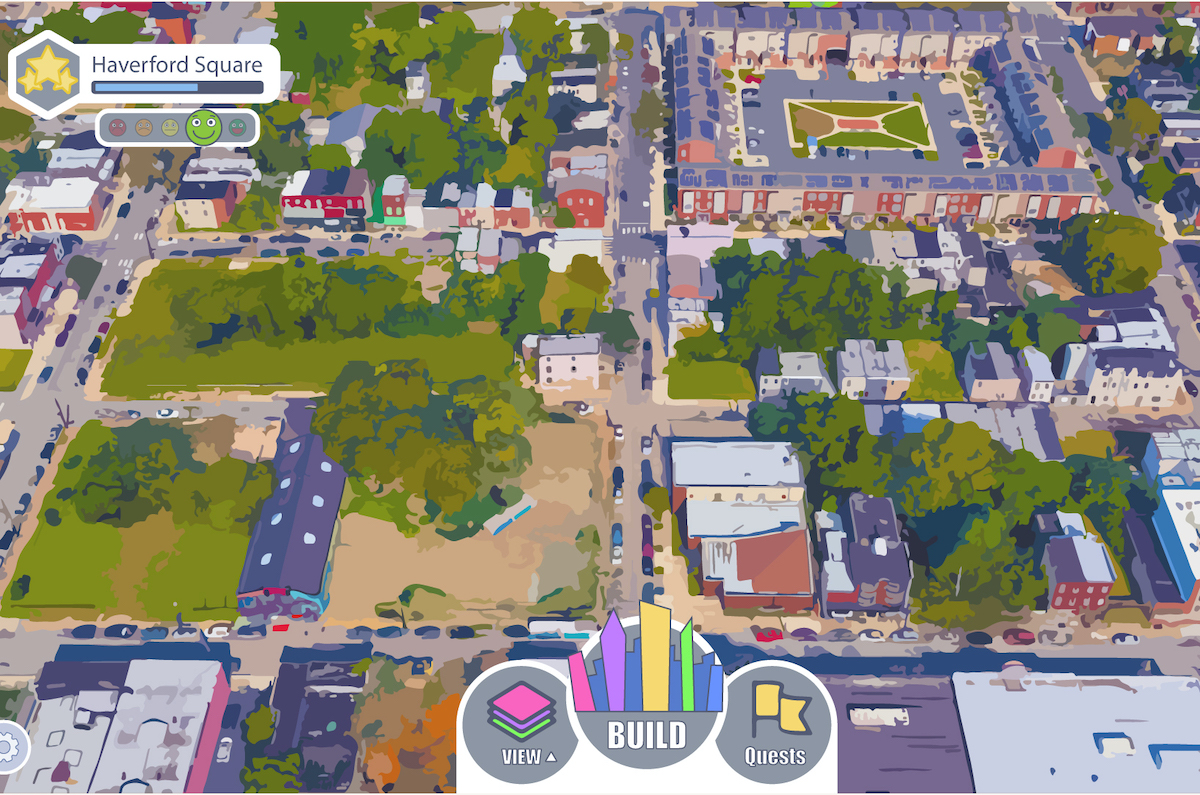With a grant from the Knight Foundation, a new video game out of Drexel University’s Entrepreneurial Game Studio (ESG) will help players better understand urban planning in Philadelphia.
Simulated Interactive Management of the City of Philadelphia (SIM-PHL) was one of seven projects selected among thousands of applications for funding from the Knight’s open data initiative.
With development led by educator and game designer Frank Lee and supported by Gossamer Games, a local game dev studio that got its start with Drexel’s game design lab, SIM-PHL is one of three Philadelphia projects to receive funding from this Knight funding. The others are Neighborhood-Led Permitting, a project to let residents know about construction in their neighborhoods, and Edit the City!, a South Street Headhouse District project allowing residents to help conceptualize what the area will look after COVID-19.
Like Will Wright’s famous urban planning simulator SimCity, SIM-PHL allows players to create the neighborhood they want — but with a Philly twist. SIM-PHL relies on actual property values, incident reports and zoning maps to create an accurate representation of the city.
By using open data from the City of Philadelphia’s Atlas website, SIM-PHL helps players connect the ways in which real estate development affects how communities thrive, and in some ways, struggle.
“I just wanted to make connections, especially for policymakers, on how urban planning connects to food insecurity, gentrification and housing issues,” Lee told Technical.ly.
SIM-PHL players will be city managers in West Philadelphia’s Mantua community, where they must manage city and state funding to best maintain the morale of their residents while creating a sustainable community in the process. In recent years, Mantua has been beset by gentrification, a phenomenon happening nationwide that often forces longtime residents of color with lower incomes out of their homes.
For Lee, using open data is an integral way of teaching players about the importance of public information and making better-informed decisions because of the access to it.
“My hope is the normal, everyday citizens and kids, in particular from neighborhoods that we’re from, will understand how things work [where they live],” he said. “The power of a video game is taking a complex idea and making it understandable.”
Lee says that the current plan is to make SIM-PHL available as a website that users can access via a phone or computer sometime in 2021.
“We are planning to create a web version of the game that can be accessed any computers — Mac, PC — and mobile devices — iOS and Android — that are HTML5 compatible, which should be any modern browser,” Lee said.
If funded, the second phase of the project will allow ESG to make SIM-PHL into an augmented reality game and help the user make decisions while walking through Mantua IRL.
In addition to seeing its students create games for Microsoft Xbox, Sony PlayStation and more recently Nintendo Switch and Apple iOS, ESG received fanfare in June 2019 when it worked with middle school students to showcase the video games they created via projection onto the 29-story Cira Centre building.







